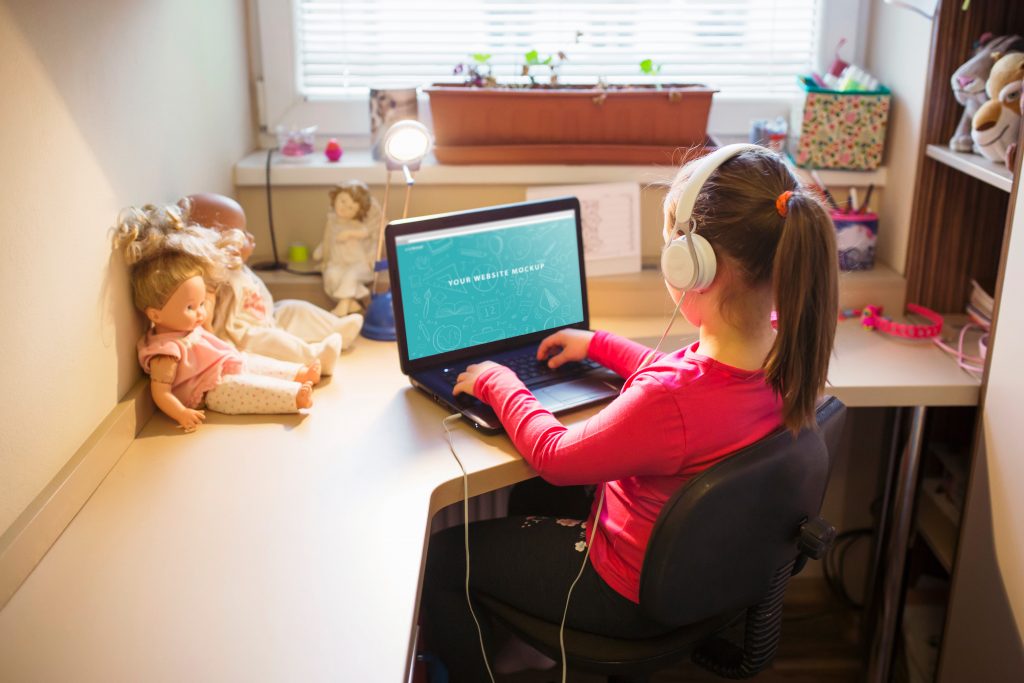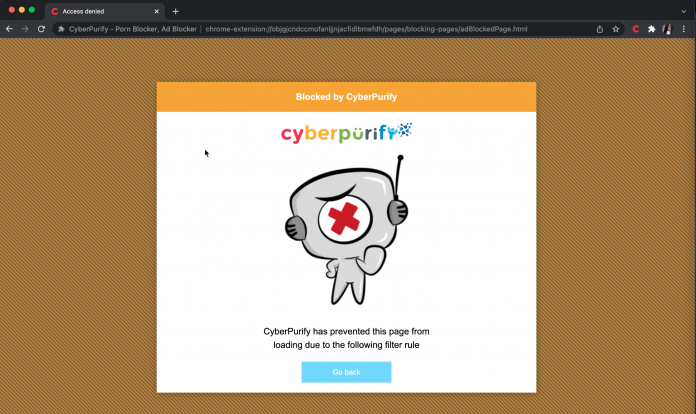We understand that parents are busy reading an entire long article about online safety rules. Don’t worry! We are here to collect, and verify information from experts in children’s online safety to give you 20 easy Internet safety tips to keep children safe online.
20 easy Internet safety tips to keep children safe online
- Make sure your children don’t turn on location when posting or sending messages. Also, parents when uploading children’s photos on social media, it’s best not to let others know your location by geotagging them.
Here are how to turn off location when using Facebook and Snapchat.
2. Have a mutual agreement about internet safety rules. Here are some examples:
- Do not use Internet-connected devices one hour before going to bed
- Use the devices in the evening after completing homework
- Do not go online before school
- Do not play on the phone or tablet computer when family and friends come to play
- Do not use the phone during mealtimes
Setting these boundaries will help minimize the negative effects associated with the misuse of smart devices, and protect your kids from the dangers of the Internet. Also, don’t forget to set a good example for your children by following the rules.
3. Teach your children how to behave online with others. One of the most dangers of the Internet is people have tends to more hurtful, offensive words and less care about others when communicating via a “screen”. Here is a complete social etiquette guide for your children.


4. To answer your question about “how to keep my child safe on the Internet”. Our advice is to ensure your children’s safety online learning experience by making sure all the devices your children use are connected with CyberPurify Egg – which protects all home devices from porn and gambling sites.
5. Familiar yourself with websites, apps, and games your children or teens use. It is an important part to protect children from the dangers of the Internet.
Parents understand the current trends, both on the good side and bad side, and can therefore easily comprehend how to be safe online for their children. Nothing is more realistic than you directly experiencing those things.
6. Don’t stop talking. Talking is considered one of the best Internet safety rules for children to be self-aware and proactive to stay away from the dangers of the Internet.
This is about both a foundation and a catalyst for building meaningful and close relationships between parents and children.


7. Keep the webcam covered when not in use.
8. Go online with them. A great way to identify age-appropriate apps, games, and other forms of online entertainment.
Having a better understanding of what they watch, what they’re doing, and why they like this app, game, or website, and provide a great opportunity to start conversations about online safety tips.
Don’t just set a screen time limit, understand what’s happening on it.
9. Keep actively updating your knowledge about Internet safety tips. Here are some quality sources for you:
- NSPC
- Childnet
- InHope
- UNICEF
- Safer Internet Day
- CyberPurify Knowledge with specialized topics from experts about Internet safety tips for children, helping parents understand the risks and dangers of the Internet, thereby communicating with their children more effectively.


10. Ask them if they have any concerns about the Internet and let them know that they can come to you anytime when they have any questions or need assistance when they encounter something “bad” online.
11. Be mindful of what your child wears and avoid video calls while in the bedroom.
12. Build a trusting, open relationship with your child. Keep communication open and calm so your child knows they can come to you when someone asks your child to do something they don’t feel right or when someone shows them content that upsets them.
Maybe you missed this awesome articles:
13. Pay attention to your child’s unusual mental signs: staying up too late, staying away from family members, suddenly not wanting to use social networks, low self-esteem, suddenly being quiet, etc.
This could very well be a sign that your child has been sexually assaulted online or has become a victim of online violence. Being delicate will help you understand and solve the problem in time.
14. Understand that keeping your children safe from porn is not enough. There are murders, terrorism, hate speech, dead bodies, etc. those content that can frighten your children.
Protect your children more comprehensively with online content filtering tools like CyberPurify Kids – a free extension that can filter 15 types of harmful content.


15. Don’t disclose personal information online: their full names, address, siblings, parents, phone number or date of birth, etc. because attackers will rely on it to chat with your teens, pretending to be friends of their parents or their acquaintances.
16. Be careful when posting your children’s photos online, especially when they show your children are naked or wearing fewer clothes like a bikini. Should I post my kids’ photos on Facebook? This article will give your answer.
17. Help your children understand what is a malicious or discriminatory comment, or called cyberbullying. Tell them that if they experience any of these – tell a trusted adult right away. In case you need it, here are signs of cyberbullying.


18. Don’t accept friend requests from people they don’t know
This allows strangers to access information, profile pictures, and a list of friends, as well as track all activities (posts, check-ins, shares, comments, etc.) of your child.
19. Let your child understand who they need to stay away from on the Internet
Sexual predators are becoming more common. Some signs to help your child realize that a stranger is trying to develop a relationship with your child:
- Asking a lot of questions about personal information when just getting acquainted
- Use many promises and gifts to gain trust
- Wanting to keep a relationship secret – online predators often try to keep a relationship secret, demanding it’s something ‘special’ just between the two
- Contact your child often and in a variety of ways, such as texting, through Instagram or on online chat platforms
- Often compliments your child on his/her body or appearance
- Insist on seeing your child – try to make your child feel guilty or even threaten your child if he/she doesn’t want to
- Many of these warning signs don’t just apply to strangers but can apply to people your child knows in person.


What’s more important is?
Don’t overprotect your kids online.
Your child has a right to privacy, and so does the virtual world. Instead of constantly monitoring your child’s screen, sneaking in his messages, etc. you should talk more openly with your child, clearly communicating about the risks and dangers on the Internet that they should avoid.
The line between protecting and invading children’s privacy is very blurred.
To satisfy their fears, many parents have to pay a high price for over-controlling their kids. Overprotecting means you:
- Don’t respect your child’s privacy: Privacy is an important part of developing self-control. Privacy isn’t just important for teenagers. That is their duty.
- Destroy the relationship with your children
- Make your children even more secretive


So, how do I keep my children safe online?
To ensure your child’s online environment is safe and healthier, you should consider using an additional online content filtering tool – considered by many parents as one of the best free parental control software to hide 15 types of harmful content on the Internet, including:
- Pornography
- Horrifying content like gore, accidents, ghosts, violence, murder, terrorism, etc
- Content about stimulants, addictive substances such as alcohol, beer, marijuana, drugs, etc
- Content with aggressive elements, hurting others like Hate speech


This free porn blocker extension can help to minimize your child’s access to harmful content, keeping your child safe on the internet but at the same time, not invading their privacy rights.
Don’t forget to listen to them, keep them involved.
Don’t take anything your child shares lightly, especially when he or she expresses fear, insecurity, or anxiety about learning online. Parents need to listen to children seriously and talk to them openly about the problems they are having. Don’t hide, but acknowledge the changes your children may go through and encourage them.
You may also find this helpful:















